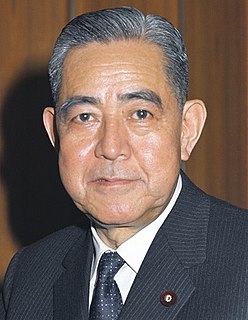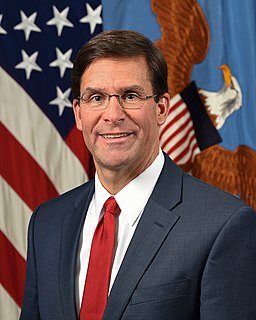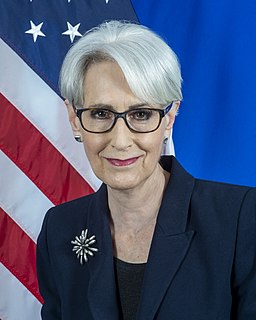A Quote by Jack Keane
Russia and China completely disagree with the international order that was established after World War II, and they're trying to take it apart right before our eyes.
Related Quotes
However, there is a fundamental difference between the issue related to Japan's history and our negotiations with China. What is it all about? The Japanese issue resulted from World War II and is stipulated in the international instruments on the outcomes of World War II, while our discussions on border issues with our Chinese counterparts have nothing to do with World War II or any other military conflicts. This is the first, or rather, I should say, the second point.
We have to recognize that the reason that the global order that we've enjoyed and almost take for granted over the last several years exists is that after World War II, the United States and its allies tried to build an antidote to what they had seen between World War I and World War II. There, they'd seen protectionism, beggar-thy-neighbor trading policies, so they said, we'll build an open international economy. And they did that.
We [with Shindzo Abe] should understand that the results of that terrible tragedy of the 20th century, namely World War II, are enshrined in corresponding international documents, and finding a way to settle all disputes without destroying the entire foundation of international law that evolved as a result of World War II is a highly delicate task. Therefore, I would like to reiterate that we cannot second-guess the course, let alone the outcome of our negotiations.
Trump will have to take up juggling if he goes ahead and scraps the agreement with Iran and at the same time, seeks to avoid alienating Russia, and quite possibly France and Germany. These European countries are already nervous about what the Trump presidency means with respect to the future of the post-World War II international order that has essentially kept the peace on the continent since 1945. This order is far from perfect, of course, and under pressure from other sources, especially due to the rise of chauvinism and European Trumpism.
What Secretary Ash Carter is looking at is the constant pressure that Russia's putting on our European allies. The way that Russia is trying to move the boundaries of the post-World War II Europe. The way that he is trying to set European countries against one another, seizing territory, holding it in Crimea. Beginning to explore whether they could make some inroads in the Baltics.
I think in many ways, the Spanish Civil War was the first battle of World War II. After all, where else in the world at this point did you have Americans in uniform who were being bombed by Nazi planes four years before the U.S. entered World War II? Hitler and Mussolini jumped in on the side of Francisco Franco and his Spanish nationalists, sent them vast amounts of military aid, airplanes, tanks - and Mussolini sent 80,000 ground troops as well - because they wanted a sympathetic ally in power. So I think it really was the opening act of World War II.
If Donald Trump dismantles the agreement [the "Iran nuclear deal"] won by President Barack Obama with President Hassan Rouhani and the Iranian government and people: If he dismantles that, and puts greater sanctions on Iran, then we are leading to another war; another war inspired by Israel, another war that will bring China into war, Russia into war, Europe into war. And the Western world, in this war, will be taken completely down, and a whole new world is on the horizon.



































